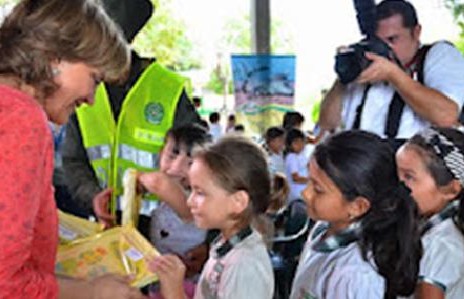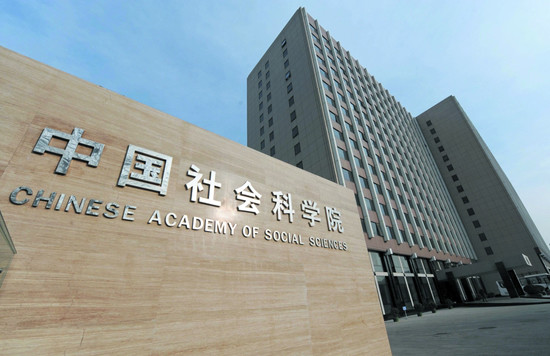China, India & Colombia’s Interbolsa
Colombian firm Interbolsa is being liquidated in a move to protect the interests of Colombia’s financial markets.
This post is also available in: Spanish
Interview with Sergio Fajardo (SF), by Federico Sucre (FS)
In an effort to understand the fundamental role of political leadership in the implementation of effective educational policies, Federico Sucre (Program Assistant for Education at the Inter-American Dialogue) interviewed Sergio Fajardo, who in his time as mayor of Medellin and now governor of Antioquia has made the achievement of quality education a top priority.
FS: Why and how did you conceive a political movement that makes education the engine of social transformation?
SF: In Medellin, 15 years ago, a group of people deeply outraged and concerned with the progress of our society, with an interest in the public sphere but outside traditional political practices, met and accepted, finally, an overwhelming truth: politicians make the most important decisions of our society. Like it or not. We made, then, a difficult decision: to go from indignation to political action in order to seek power based on our ideals and dreams. We formed the independent civic movement Citizen Engagement (Compromiso Ciudadano) and set out to participate in elections to reach City Hall and change the direction of the city. We quickly set the basic principles that formalized our vision of public policy. We had 3 clear problems we wanted to solve: the deep social inequalities among people and among our territories, the violence that has marked our lives in recent decades, and the culture of lawlessness with corruption as the star chapter.
How then is a policy made in this civic spirit? The essence is captured by the expression “the means justify the end.” The transformation of society begins in the political practice, in form, of building trust with the people. First we broke with the clientelist politics, as a gateway to corruption, where you pay to arrive and then you come to pay. We took to the streets, walking the city and meeting the citizens without intermediaries, and looking into their eyes to listen to them and directly explain our proposals. We carried the city’s name in our skin, our hearts, and our minds.
From the beginning it was clear that the social transformation we seek revolves around education, understood in its broadest sense; this includes the education system, science and technology, innovation, entrepreneurship, and culture. Understanding it in this way, we can find the tools to work on solving the three problems that we have prioritized. In this way educational institutions become a part of a broad social project and are protagonists of the transformation in a society that for decades has revolved around violence and illegal activities. Education thus becomes a transformative social mobilization.
Thus, the quality of education acquires another connotation. We start from the premise that without dignity there is no quality. The first step is to restore the dignity of the educational world: for example, as opposed to the recurring statement that points to teachers as hopeless cases responsible for the poor quality of our education systems, for us in Medellin and Antioquia all teachers are good, but they can all do better and commit themselves to improving
The quality of education begins with the dignity of the space. In places where violence was the protagonist and under the motto “the most beautiful things for the most humble,” in the context of a deep urban transformation, we built cultural centers, library parks, educational parks, new schools, entrepreneurship centers, and science parks. We redefined spaces and turned them into symbols that represent the dignity and capacities of the people and their communities.
Programs such as Knowledge Olympics (Olimpiadas del Conocimiento); Medellin and Antioquia Digital; Networks of math, language, ethnic education, science, and ethics; scholarships for teachers; building new universities and scholarships for students; Youth with future (Jóvenes con futuro), Seeds of Entrepreneurship (Semilleros de emprendimiento), scientific challenges, “La más educada awards,” the contest Women Youth Talent… now have a very different connotation: we opened the door to opportunities and we started to close the door to illegality.
We constructed a new narrative of the Antiochian society. One that invites to build; one that brings out the best in people and communities. We pass from Fear to hope.
FS: Briefly, what is Antioquia la más educada?
SF: The Department of Antioquia, where Medellín is the capital, has 125 municipalities and an area of 64.0000 square kilometers, with about 6.5 million inhabitants, more than, say, Finland, Denmark, Norway, Uruguay, Costa Rica, and Nicaragua. Although the powers and responsibilities of a Governor are very different from those of a Mayor, in the Government we continue to work on the 3 problems that we set 15 years ago.
With local authorities, and beyond partisan political differences, we built a relationship of transparency and trust, set common challenges, and developed projects and put resources to work on joint programs. We support the building of institutions in rural, marginalized, very poor areas, trapped in violent and illegal action. It is a permanent task of leadership.
We brought to all the land, together with municipalities, the programs that we developed in “Medellín La más educada”. We establish a work plan through municipal public agreements, hold one another accountable, and invite citizens to participate in all overseeing. For example in each municipality we established, in the first year in office, the Pact for the quality of education, with the challenges and responsibilities that everyone assumes. Then we put the programs mentioned in the previous questions in place and created the path of quality education as a mechanism for permanent monitoring and social mobilization. In all corners of the Department we reclaim the meaning of the expression “studying is worth it” and education is the new engine of social transformation of Antioquia.
FS: What lessons have you learned from your time as mayor and how have they influenced the design of Antioquia la más educada?
SF: The practice confirmed and ratified our initial convictions. It made us see and feel the size and power of social transformation based on education; the direction and strength of betting on the dignity and capacity of individuals and communities. It allowed us to recognize the impact of our programs in a context with a presence of violence and illegality. We understood how well public resources can be used if they do not end up in corrupt pockets. Medellin la más educada showed us the meaning and power of symbols in building hope. These and other lessons have been the basis for Antioquia la más educada.
FS: All major initiatives require the collaborative effort of different actors. Who are the main actors of this project? What alliances have been created? How have they worked?
SF: Our way of doing politics breaks the patronage structure in which the relations are reduced to negotiations of particular interests. We come together to build and have respect as our main principle. For example, with the National Government we always find common spaces to collaborate. With municipal governments, we always work in a way that respects their autonomy. We have also received support from foreign governments (e.g. through USAID and the French Development Agency) for programs in the most complex areas. The IDB has been a great ally, the World Bank has supported us, and the European Union has accompanied important processes in our territory.
In the private sector we built a relationship of trust and it is an important ally on several fronts. Similarly, almost all political parties have supported us and helped improve our programs.
FS: After applying successful educational programs in Medellin and Antioquia, what lessons can the rest of Colombia take away?
SF: We have learned to value politics. We therefore insist on the need to participate in politics. Now, in our present level of development and at the gate of a process that could be an important step to end more than 50 years of violence, the peacebuilding requires a profound cultural and social transformation. Our proposal and experience in the governments of Medellin and Antioquia, along with other successful cases in Colombia and Latin America, offer an alternative to turn the page of violence and write the page of intelligence, dignity, respect, capabilities, and opportunities. A real and profound social and cultural transformation.
FS: Recently the Dialogue has invited you to participate in the Commission for Quality Education for All. In your opinion, what are the main challenges and opportunities of this Commission?
SF: In principle, we face similar problems and challenges in the field of education in Latin America. Naturally, there are different contexts but there are important similarities. This Commission is a privileged space to think of questions that could not be developed separately. How can we learn from each other? Can we identify some Latin American problem that allows us to work together? Education is the natural candidate. In subjects such as science and technology we have not been able to agree; it sometimes seems as if the inability to unite in Latin America is in our roots. The Commission could help change that paradigm if we broaden the scope of the educational quality concept, and we favor the inclusion of discussions and lessons in politics, beyond the privileged knowledge of technical experts.
Sergio Fajardo is a member of the Inter-American Dialogue and the Commission for Quality Education for All. You can follow him on Twitter @sergio_fajardo.
Colombian firm Interbolsa is being liquidated in a move to protect the interests of Colombia’s financial markets.
What Columbia is doing to improve its education quality.
Who in China is advising on energy engagement with Latin America?

